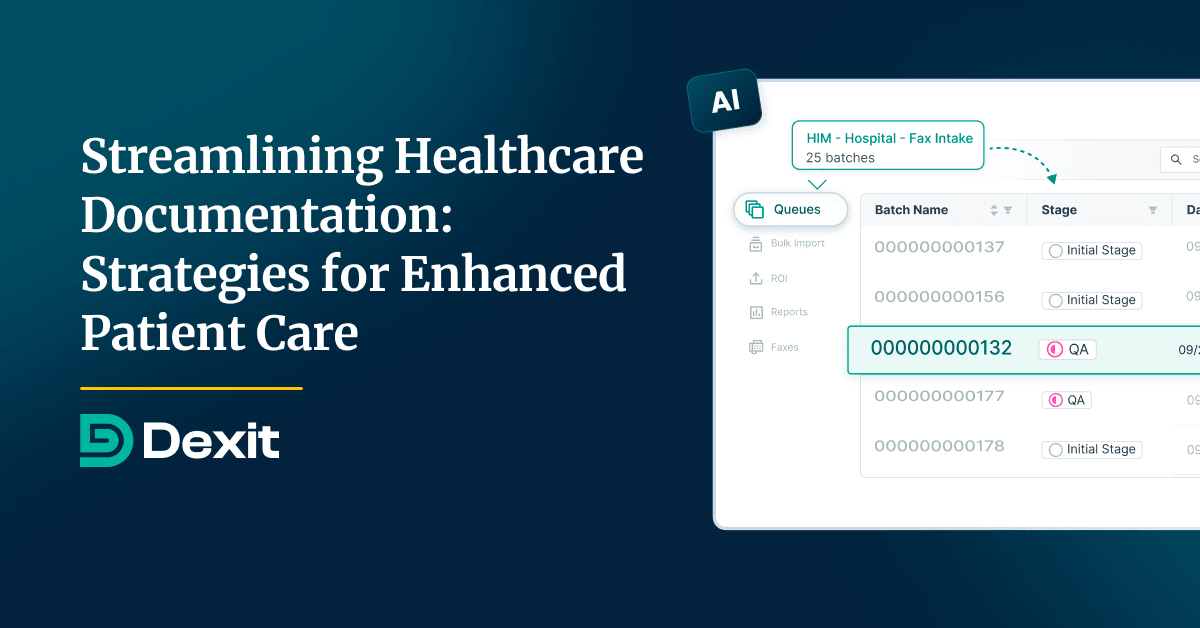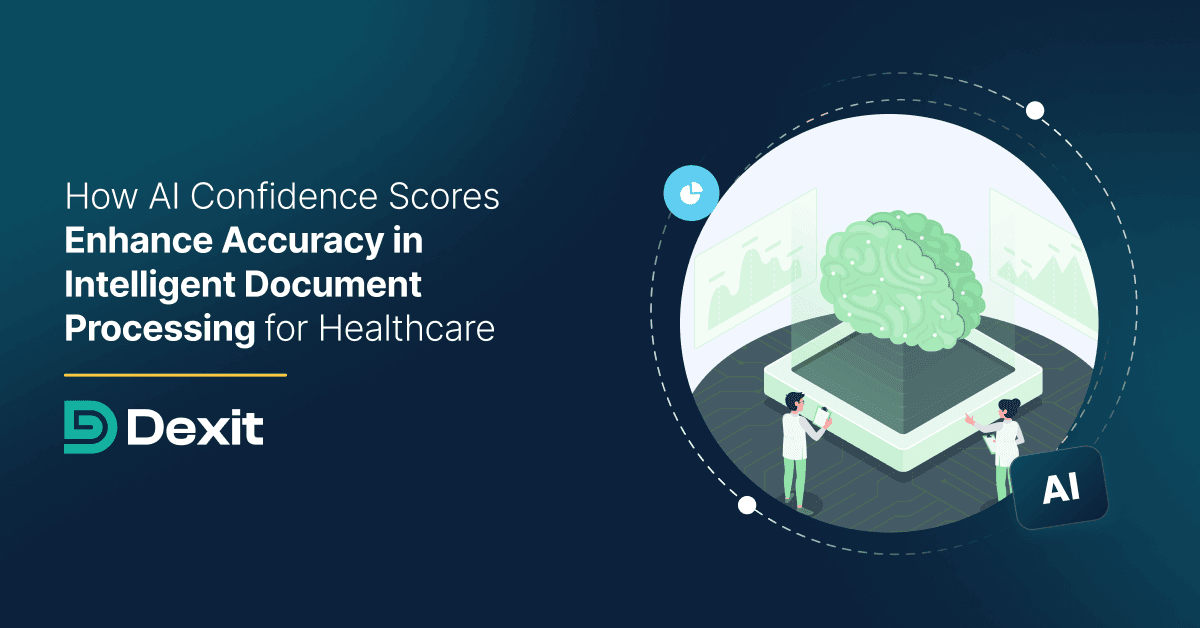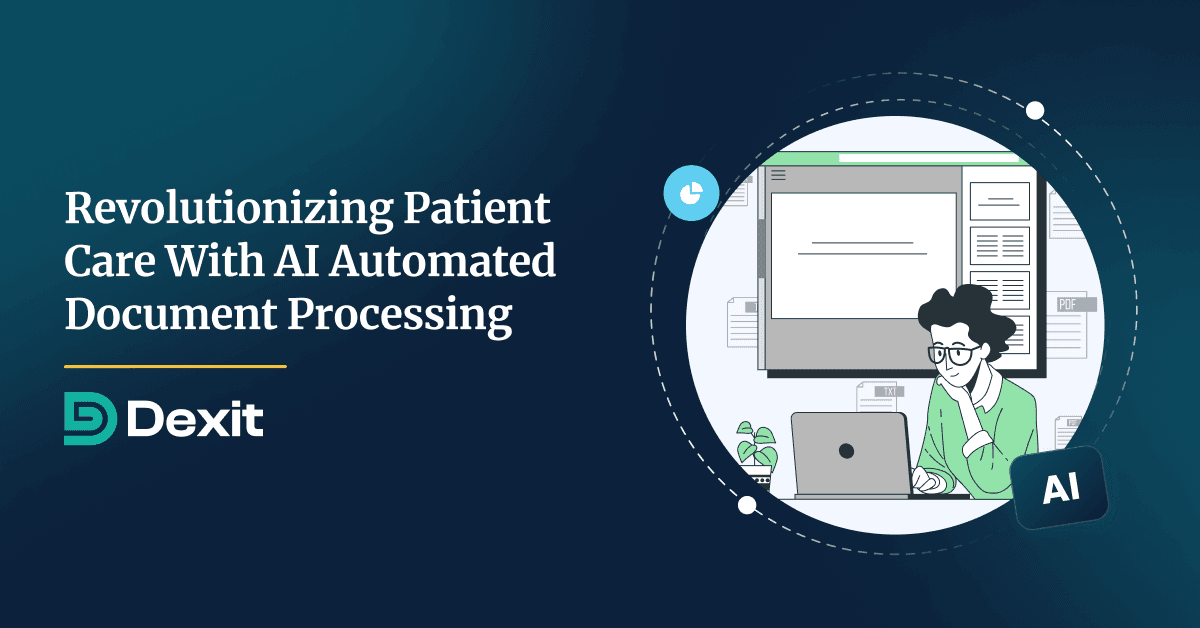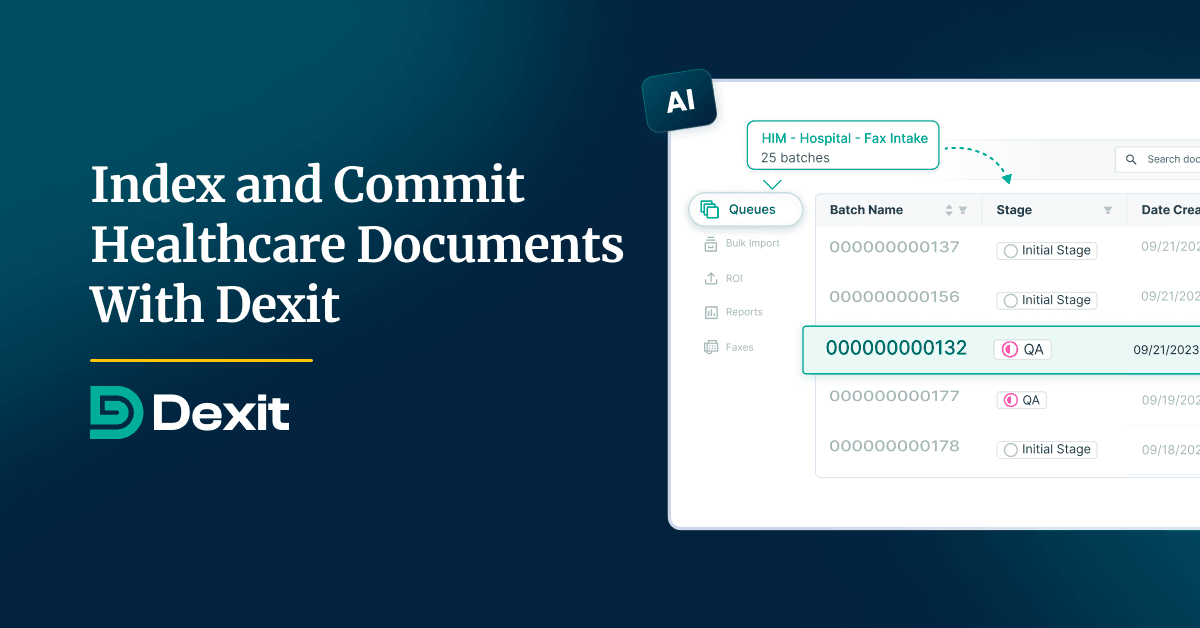
Streamlining Healthcare Documentation: Strategies for Enhanced Patient Care
Efficient documentation is the lifeblood of modern healthcare. It's the medium through which patient histories …

Healthcare runs on data, yet much of that data still arrives in the form of unstructured documents — from patient records to test results and beyond. Processing this information manually is no longer practical at scale, especially when errors can directly impact patient safety, financial integrity, and regulatory compliance.
This is where AI-powered Intelligent Document Processing (IDP) solutions are making a difference. By going beyond basic data extraction, they introduce an additional safeguard: confidence scores. These scores provide a measurable way to validate accuracy, streamline document workflows, and minimize human errors.
But what exactly are confidence scores, and how do they transform intelligent document processing in healthcare? Let’s take a closer look.
Explore:
1. What Are AI Confidence Scores in Document Processing?
2. Why Confidence Scores Are Key to Reliable Healthcare Document Processing?
3. How Dexit’s AI Confidence Scores Improve Intelligent Document Processing
4. The Bigger Picture: AI Confidence Scores as a Bridge
A confidence score is a measure of how certain an AI system is about the accuracy of extracted data. Whenever document processing AI extracts information such as patient names, dates of birth, insurance IDs, or ICD/CPT codes, it assigns a score (0–100%) reflecting its certainty.
In simple terms, confidence scores act as an AI-driven safeguard — helping determine when automation can be trusted and when human review is essential.
Errors in healthcare documentation can cause serious consequences across clinical, operational, and financial workflows:
With AI-based document processing solutions, confidence scores in machine learning (ML) ensure the right balance between automation and human oversight. This eventually helps prevent errors that could lead not only to financial losses, but also to serious risks for patient safety.
This is where Dexit comes in. As an Intelligent Document Processing (IDP) solution, Dexit integrates AI-powered confidence scores directly into healthcare workflows. By validating accuracy in real time, the solution minimizes errors, speeds up document routing, and ensures providers can rely on clean, verified data without unnecessary manual checks.
1. Automated Accuracy Checks
Dexit’s AI automatically assigns a confidence score to every extracted data field, indicating how certain it is about the accuracy. High-certainty fields — like a patient name at 98% confidence — are processed seamlessly. On the other hand, lower-confidence fields — such as an insurance policy number at 62% — are flagged for staff review. This approach ensures accuracy without slowing down workflows, since only uncertain data requires human validation rather than every single field.
2. Exception-based Handling at Scale
Instead of overwhelming staff with all documents, Dexit uses confidence scores to surface only exceptions. This is known as exception-based handling. Low-confidence cases get routed for human validation, reducing review time and accelerating turnaround across clinical and billing workflows.
Also read: Exception-based Handling With AI: A Smarter Approach to Intelligent Healthcare Document Processing
3. Smarter Resource Allocation
With Dexit highlighting only low-confidence data points, staff focus their energy where it truly matters. This targeted oversight reduces burnout, optimizes staffing, and keeps operations flowing smoothly.
4. Transparency & Trust in AI Document Processing
Dexit’s dashboard provides visibility into what percentage of data was auto-processed versus flagged for review. This transparency builds trust in AI-native document processing solutions and empowers healthcare teams to rely on these solutions more effectively.
5. Continuous Learning for Better Accuracy
Over time, Dexit leverages feedback from low-confidence cases to retrain its machine learning models. For example, if a document with hard-to-read text frequently returns low scores, the system adapts to improve recognition accuracy — continuously raising overall performance.
Confidence scores aren’t just a technical safeguard—they are the strategic bridge between automation and reliability in healthcare. By combining speed with oversight, they enable organizations to achieve outcomes that go beyond day-to-day workflow gains:
With healthcare teams under constant pressure to do more with less, confidence score–driven AI document processing ensures efficiency and accuracy go hand in hand. By taking on high-certainty tasks and surfacing only the exceptions, Intelligent Document Processing (IDP) platforms remove bottlenecks and make scaling sustainable. If you’re interested in seeing in action how Dexit streamlines document workflows with its AI confidence scores, book a demo with our seasoned experts today.
Join over 3,200 subscribers and keep up-to-date with the latest innovations & best practices in Healthcare IT.

Efficient documentation is the lifeblood of modern healthcare. It's the medium through which patient histories …

Let’s face it—paperwork isn’t why anyone got into healthcare. Yet, for many, processing patient documents, …

Within the realm of healthcare document indexing, precision is paramount. It guarantees that every piece of …